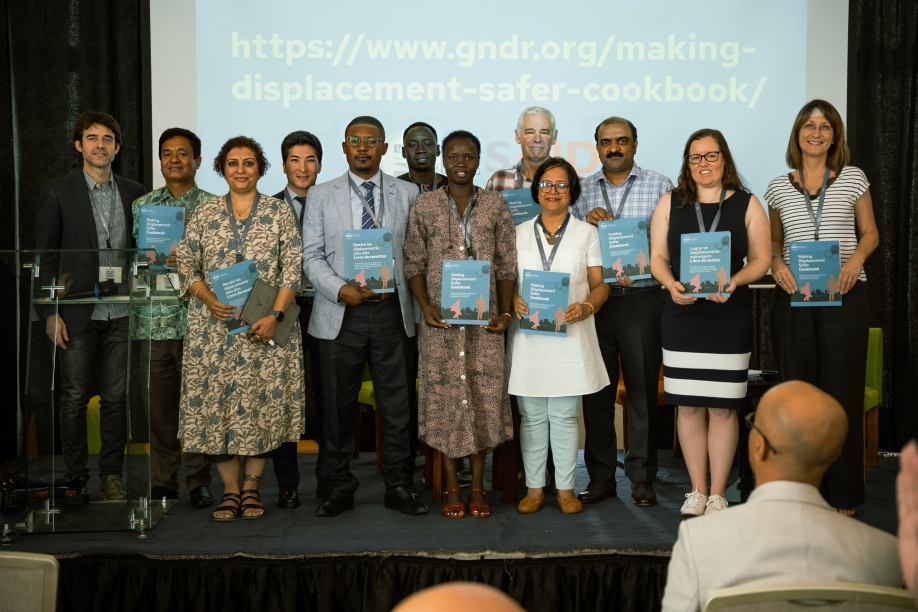Dear GNDR members,
As 2024 draws to a close, we take a moment to reflect on another extraordinary year of how we as a network, inspired and led by the work of you, our deeply valued members, have continued to address the many challenges faced by communities at the frontline of risk.
Record-breaking heat persists around the world, while devastating floods have hit Africa and parts of Europe (most recently Spain) – all evidence of the growing urgency to address climate-related disasters. These crises continue to highlight the importance of locally-led planning and response, where civil society organisations (CSOs) play a pivotal role in mitigating impact and building resilience on the frontlines.
This year has shown the strength and resilience of our network, which has grown to 1,965 members across 131 countries. Together, we’ve worked to support communities most at risk, helping them prepare for and respond to disasters. In a year shaped by global challenges, your work driving practical, community-driven solutions that puts local people at the heart of decision-making, continues to make an extraordinary impact.
At GNDR, we’re committed to fostering collaboration across our diverse membership. Nothing represented this better in 2024 than our Global Summit for Disaster Risk Reduction in Nairobi, Kenya. Our members are leaders and innovators, and we were delighted to welcome 180 of you to share knowledge, build partnerships, and drive action. The summit highlighted the importance of inclusive data, community-driven approaches, and partnerships in shaping sustainable disaster responses. We were thrilled to be able to invite so many of you to join us in Kenya.
Generating evidence for impact
We continue to make progress in our efforts to generate strong evidence through our programmes that will enable us to promote real policy changes that strengthen the resilience of communities at the frontline. This year marked the conclusion of our Making Displacement Safer programme, which addressed urban disaster risks faced by displaced individuals. Insights from nearly 5,000 interviews informed the Making Displacement Safer Cookbook, a resource launched at the summit to empower civil society with actionable strategies.
We also concluded our Local Leadership for Global Impact project, which reached more than 55,000 participants with impressive achievements, such as the production of valuable resources including our Locally Led Anticipatory Action Guide and Toolkit and Localising Climate Projections Guide and Toolkit. Excitingly, we have also commenced our Localising Early Warning Systems and Anticipatory Action Through CSOs project – a collaboration with the Risk-informed Early Action Partnership (REAP). The first stage of implementation is a survey designed to gather information on the state of early warning systems and anticipatory action across the world. There’s still time to share your perspective, so please complete the survey if you have the chance.
Advocating for localisation, risk-informed development and inclusive DRR
With your support, we have also been proud to amplify community voices on global platforms, advocating for risk-informed development at the 2024 High-Level Political Forum, the Summit for the Future, and the G20 Working Group on Disaster Risk Reduction, ensuring that localisation, local voices and civil society were meaningfully included in the Pact for the Future and the future of the UN system.
At COP29 in Baku, Azerbaijan, alongside brilliant members from Pakistan, Nigeria, Lebanon, Egypt, Sudan to name but a few, we represented civil society voices by calling for climate finance to be decolonised, and for local and indigenous knowledge to be integrated into decision-making. Although the results of COP29 were not what we expected or hoped for, we will continue to push for climate solutions that centre the voices, needs and experiences of local people and communities.
In this period, we also attended UNDRR’s Regional Platforms for DRR in Europe and Central Asia, in Africa, the Asia-Pacific Ministerial Conference for DRR and the Sixth High-Level Meeting of Ministers and Authorities on the Implementation of the Sendai Framework for DRR in the Americas and the Caribbean; and as part of these regional events, we have been actively supporting the Regional Early Warning Multi-Stakeholder Forum under the leadership of our Regional Teams.
Our network
As you will know, this year we also said our thanks to outgoing National Focal Points and welcomed 107 new NFPs who stood for election throughout the latter half of 2024. We are enormously grateful for the contributions that each made to the network and look forward to working closely with the new NFPs to continue driving forward national coordination across each region. Thank you to everyone who stood for election and participated in the process.
Our Global Board also underwent changes, and we were delighted to welcome our new Chair Emmanuel Seck of ENDA Energie, Senegal, alongside new regional representatives in four regions: Central America, South America, Europe, and East Africa. I would also like to take this opportunity to thank Graciela Salaberri, our outgoing Chair, for her many years of incredible leadership and dedication.
As we reflect on this year’s progress, we remain determined in our mission to generate evidence that will allow us to elevate frontline voices in global decision-making spaces and reduce the impacts of disasters for the communities we serve.
None of this would be possible without the amazing work of you, our members, and as we look forward to 2025 and beyond, we are inspired and honoured by the opportunity to stand alongside you as we all strive for a world where the communities most at risk have the resilience to withstand hazards.
Marcos Concepcion Raba
Executive Director
